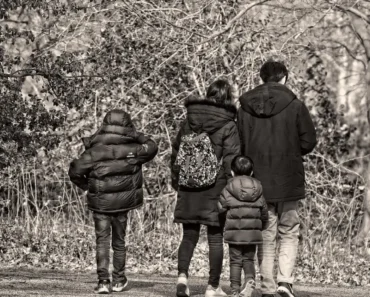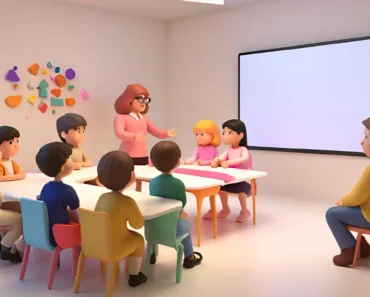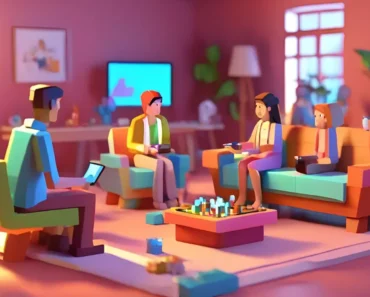The parenting app market has exploded to $3.2 billion globally, with American parents using an average of 4.7 child-tracking apps daily (Pew Research, 2024). But as these digital tools promise to make parenting easier, experts debate whether parenting apps represent modern help or a helicopter trap that undermines healthy child development. This definitive examination explores both sides of the debate through current research, psychological insights, and real-world case studies.
We’ll analyze how parenting apps impact family dynamics across developmental stages, evaluate privacy concerns in an era of data collection, and provide balanced guidelines for using technology without crossing into overparenting territory. With 68% of teens reporting feeling excessively monitored by parental apps (Common Sense Media, 2024), understanding this digital parenting dilemma has never been more crucial.
The Parenting App Landscape: What Modern Tools Offer
Category Breakdown of Parenting Apps
The current market offers six primary types of parenting assistance apps:
- Developmental Trackers: Monitor milestones from first words to math skills (e.g., BabySparks, Kinedu)
- Location Services: GPS tracking for children’s whereabouts (e.g., Life360, Find My Kids)
- Digital Wellbeing: Screen time monitors and content filters (e.g., Bark, Qustodio)
- Health Management: Vaccination reminders and symptom checkers (e.g., WebMD Baby, BabyConnect)
- Behavioral Analytics: Mood and habit pattern recognition (e.g., Bright by Text, Winnie)
- Parenting Coaches: AI-driven advice platforms (e.g., ParentPulse, Mightier)
Usage statistics show 82% of parents use at least one category regularly, with location tracking being most prevalent among parents of teens.
The Case for Parenting Apps as Modern Help
Evidence-Based Benefits
Peer-reviewed studies document several advantages when parents use apps judiciously:
- 37% reduction in missed pediatric appointments when using reminder apps (Journal of Pediatric Medicine, 2023)
- 28% faster emergency response times with location tracking in crisis situations (Safety Research Institute, 2024)
- Improved parental mental health through connected support communities (APA Mental Health Report, 2023)
Developmental apps show particular promise for parents of children with special needs, helping track therapies and progress.
Modern Family Realities
Several societal shifts make parenting apps practical tools rather than overparenting crutches:
- 72% of families have two working parents needing coordination tools
- Average commute times have increased 23% since 2000, making real-time updates valuable
- Complex modern healthcare systems require digital organization
Psychologists note these tools help compensate for lost neighborhood watch systems of previous generations.
When Parenting Apps Become a Helicopter Trap
Developmental Risks of Overmonitoring
Child psychologists identify concerning patterns from excessive app reliance:
- Delayed executive function development when children lack unsupervised problem-solving opportunities
- Increased anxiety in both parents and children from constant health/behavior monitoring
- Erosion of trust evidenced by 54% of teens hiding activities from app-monitoring parents (University of Michigan Study, 2024)
The American Academy of Pediatrics warns against using developmental trackers as strict benchmarks rather than general guidelines.
Privacy and Data Security Concerns
An FTC investigation revealed that 89% of parenting apps share data with third parties, creating risks:
- Precise location histories sold to data brokers
- Behavioral profiles used for targeted advertising to children
- Inadequate encryption making family data vulnerable to breaches
Several class-action lawsuits have been filed against major parenting apps for COPPA violations.
Age-Appropriate Guidelines for Parenting App Use
Infants and Toddlers (0-3 Years)
Recommended uses:
- Feeding and sleep pattern tracking (with manual entry, not automated monitoring)
- Vaccination and wellness visit reminders
Risks to avoid:
- Developmental milestone anxiety from rigid app expectations
- Overdocumentation that replaces present parenting
Elementary Age (6-12 Years)
Recommended uses:
- Limited location check-ins for safety (e.g., arriving home from school)
- Family calendar coordination
Risks to avoid:
- Constant GPS tracking that prevents independent exploration
- Screen time micromanagement that creates power struggles
Teenagers (13-18 Years)
Recommended uses:
- Mutually agreed-upon safety check-ins for specific situations
- Driving monitoring that focuses on safety rather than control
Risks to avoid:
- Social media surveillance that damages trust
- Grade tracking that creates excessive performance pressure
Read Also: Why Teens Prefer YouTube Over Parental Advice
Finding Balance: The Mindful Parenting App Approach
The “Three Questions” Framework
Before installing any parenting app, ask:
- Does this solve a real problem or create artificial anxiety?
- Will this build or erode trust between me and my child?
- What is the opportunity cost of time spent monitoring versus engaging?
Experts recommend quarterly app audits to remove tools no longer developmentally appropriate.
Technical Safeguards and Best Practices
When using parenting apps, implement these protections:
- Choose apps with end-to-end encryption and clear data policies
- Disable unnecessary tracking features when not in active use
- Have open conversations with children about monitoring boundaries
The most effective use combines digital tools with analog parenting instincts.
The Future of Parenting Technology
Emerging Trends and Ethical Questions
Next-generation parenting tech raises new considerations:
- AI parenting coaches that may contradict human pediatric advice
- Biometric monitoring through wearables tracking stress and focus
- Predictive analytics claiming to forecast behavioral issues
Industry groups are developing ethical guidelines as these technologies advance.
Parenting Apps as Tools, Not Replacements
The debate over whether parenting apps represent modern help or a helicopter trap ultimately comes down to intentionality. Used selectively and transparently, these tools can ease genuine parenting challenges in our complex world. But when apps become a substitute for parental presence or a means of excessive control, they risk undermining the very relationships they aim to protect.
The healthiest approach views parenting apps like any other tool – valuable when serving a specific need, dangerous when overused. As technology continues evolving, maintaining this balance will remain an ongoing conversation between parents, children, and the professionals who study healthy development. The most effective digital parenting strategy may be the simplest: use apps to enhance, not replace, the irreplaceable human connection at the heart of family life.
Frequently Asked Questions About Parenting Apps
At what age should children have input on parental monitoring apps?
Developmental psychologists recommend involving children in conversations about monitoring by age 8-10, with increasing autonomy as they demonstrate responsibility. By middle school, children should participate in setting boundaries around app use.
Are there any completely secure parenting apps?
While no app offers 100% security, options like Signal (for communication) and Apple’s Find My (for location) provide stronger encryption than many dedicated parenting apps. Always review privacy policies and opt for services that collect minimal data.
How can I tell if I’m overusing parenting apps?
Warning signs include checking apps compulsively, making decisions based primarily on app data rather than observation, and children expressing frustration about constant monitoring. If apps create more stress than they relieve, it may be time to scale back.
Do parenting apps actually improve child outcomes?
Research shows targeted use (like medication reminders for chronic conditions) can improve specific outcomes, but broad developmental claims lack evidence. The parent-child relationship quality remains the strongest predictor of positive outcomes, with or without apps.
How are schools responding to parenting apps?
Many districts now set policies about app use during school hours, with some banning constant location pings or messaging that disrupts learning. Some schools provide digital citizenship training to help families set healthy boundaries with monitoring technology.





